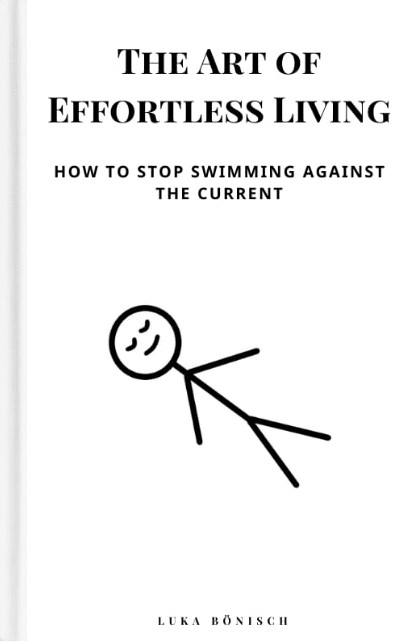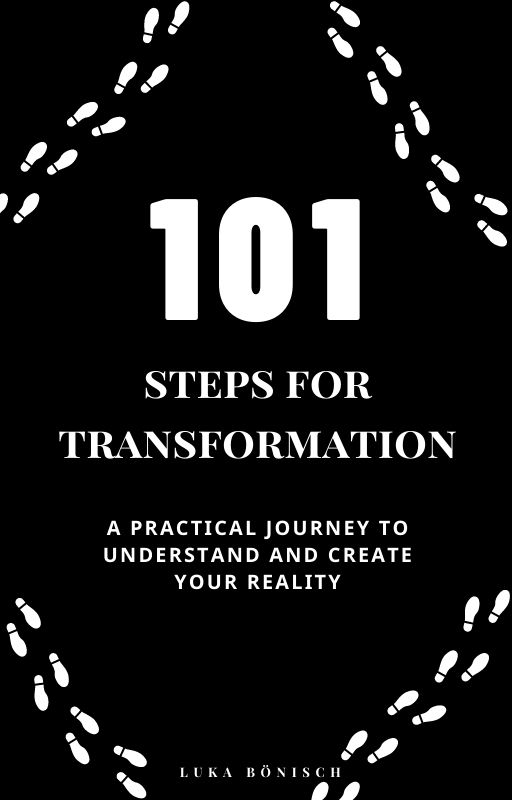If you’re anything like me (and because you’re here, I assume you are) you have, at some point in your life, had a distinct feeling of being a prisoner — a prisoner of your own mind. Everything I wanted from that point on was to escape this prison. But because the prison of the mind was everything I believed myself to be, escaping seemed like a hopeless, straight-up impossible task.
It’s not.
The issue is that our minds seem like the most private experience we have. Our minds seem, in fact, so private that most of us live as if our minds are what we are. Therefore trying to escape our minds then becomes trying to escape from ourselves.
When I want to escape the prison of the mind, the next issue is that I assume there is a me that can escape the mind. But what exactly is this me? How is it different from the mind?
Assuming this me would be successful in his mental prison break, what would be left?
As we can see, this whole trying to escape your mind act becomes quite a shaky endeavor when we question our well-meaning intentions.
So before we try to saw on any bars of our prison cell, let’s study the prison blueprint. Let’s make sure we’re not being fools and escape into yet another prison cell.
What is The Prison of The Mind?

What do we mean when we talk about a prison of the mind?
Experientially you’re very familiar with it. The prison of your mind is repetitive thoughts that evoke painful emotions, which, in turn, turn your experience into a miserable one. Sometimes, of course, there are pleasant emotions that make you forget the prison. This, however, just adds to the misery because you feel like you’re constantly alternating between heaven and hell.
Generally, it’s the feeling of being a victim of your thoughts and emotions without a way out.
This is the normal state of being of almost everyone. Some people spend a lot of time numbing themselves to the reality of this by using substances, socialization, entertainment, complaining about everything and everyone, and so on. Other people are so painfully aware of it that they are beyond being able to avoid this suffering.
You are in one of four scenarios right now:
1. You are oblivious to the prison and have yet to become fully aware of the bars enclosing you.
2. You are fully aware of the prison but haven’t realized the nature of the prison and thus haven’t been able to initiate the escape.
3. You are fully aware of the prison and are on your way out.
4. You are no longer in prison.
Now is a good time to point back at yourself and ask, where am I right now? Am I in prison? Am I out of prison? Or, am I perhaps so busy complaining about my cell mates and the interior design that I haven’t fully realized my predicament?
Wherever you are right now, know that it’s exactly where you need to be. But also know that nothing is permanent (except perhaps impermanence).
If the prison does not yet feel like a prison to you, then there is no need to force it into being. After all, this is not something you can avoid forever. Sooner or later we all become the protagonists of our own prison break. Pretty cool, huh?
The Mental Prison Break

So far we have superficially identified what the prison of the mind is. In a nutshell, it’s general discontent about existence.
Now how do we escape this prison?
We don’t.
You’ve tried, haven’t you? You have engaged in all kinds of physical, psychological, and spiritual gymnastics in the hopes of a glimpse of freedom. And although some of it has probably given you a momentary sense of relief and happiness, nothing lasted.
After you were done meditating or praying or breath-working you opened your eyes just to see that the walls are still there.
Or are they?
Everything you have done so far to escape didn’t work because it was all based on a wrong premise.
There is no you to escape nor is there a mental prison to escape from. Both — the you and the prison — are imaginary acts. And this is the key to escaping: understanding that there is no escape because there was never anyone incarcerated.
The Maelstrom

One of the reasons why we have such trouble realizing the truth of our predicament is the maelstrom of our minds. In the words of a dictionary, a maelstrom is a violently confused or dangerously agitated state of mind.
Although confusion and agitation are our daily bread and butter, there is another important factor that disrupts our clear seeing. For this, another definition of the word maelstrom is useful: any large or violent whirlpool. Because our mental content is plentiful and seems to move in a swirling manner, we assume that there is something or rather someone aka me at the center of it.
So the two reasons we don’t see that there is actually no one trapped inside our minds are:
1. The mental content is so abundant, intense, and engaging we are fully absorbed by it, and therefore lack a clear detached view.
2. The swirling and repetitive motion of our minds (which is based on conditioning) makes it seem self-evident that there must be someone at the center of all the swirling and repetition.
But speaking of maelstroms, we know that there is no entity at the center. Maelstroms are not created by someone swirling around like crazy. They occur when opposite currents collide and create a circular vortex.
Those opposite currents are the positive and negative, the attractions and aversions, the joys and fears of your life. And those didn’t come from a center; they came from the environment. In other words, the you you think you are is the result of programming you were not actively involved in.
Who was actively involved? Everyone and everything you have ever come into contact with; every little thing that has ever happened in and around you played its part.
Now this doesn’t mean that you should wallow in your emotional excrements. You acknowledge it and flush it down. Whirlpools are simply a side-effect of flushing, meaning the whirlpool is present because the process of flushing is in full force.
Although it might seem like there is an overwhelming amount of emotional garbage, the good thing about maelstroms is that there are large and strong enough to suck down entire ships. So our puny little egos shouldn’t be a problem.
Or to say it less obscurely, all your emotional garbage digests itself when you stop trying to hold on to it.
Life is an Optical Illusion

To realize that what we are is not a mentally imprisoned self (note: not a self in any kind of form), we need a shift in perception. We need to shift out of identification with the mental content that makes up the prison of the mind into becoming aware of the background.
This shift is like the duck-rabbit optical illusion. First, you see only the rabbit. So you stare and stare until, eventually, you see the duck. After that you can always see it and you can’t unsee it; you can freely switch between rabbit and duck.
How do we go about seeing the duck?
First, instead of constantly meddling with the mental content in the hope of escaping, we stop. We don’t do anything. All we do is observe our actions, thoughts, and emotions.
If this is too much in the beginning, start by watching only your actions. Then, after you got the hang of that, progress to watching your thoughts. And then, when you’re able to watch your thoughts consistently, start watching your emotions and your subtle mood shifts.
With time, you will realize that you are not in control of your actions, thoughts, and emotions. Sure, it seems that way. But you will know without a doubt that there is no self at the center of all this activity.
You can confirm this at any point by simply looking for this apparent imprisoned self. Where is this you that is the protagonist of all thoughts, emotions, actions, decisions, desires, etc.?
It’s nowhere to be found, isn’t it?
If you can’t find it in your own immediate experience, then who can? No one can find your self for you, not even you because it doesn’t exist as such. It’s a fata morgana. It’s your mind’s answer to its strong aversion to non-existence.
Stop being so entranced by the rabbit’s quick movements and pay attention to the duck. When you’re able to see both — the rabbit and the duck — as the expression of one and the same, then you’ll break out of the prison of your mind.
The Story About The Prison of The Mind

This whole notion of a you that somehow needs to escape its own mental experience is a story you’ve been telling yourself. It’s not an actuality. And the more you do to improve or heal or ascend or whatever with the goal of becoming a “free being,” the more you are keeping this story alive.
This doesn’t mean that you can’t keep doing those things. But forget about it at least for a moment.
If you could for a moment just stop telling the same old story that’s been going on autopilot, then what do you actually know? If you stop living in your imagination for a moment and come back to your immediate experience, then what is actually here?
What we are talking about now is not a long hard process. I’m simply inviting you to stop believing the incessant story in your mind for a second and take one honest look at what’s really going on.
What if you would stop imagining this happy-ever-after fairytale place you’ve been subconsciously trying to get to? What if you would stop projecting meaning and importance onto every little thought and emotion? What if you would stop villanizing the mind and start seeing what it is — the substance of everything?
The mind is not a prison because the mind is all there is. There are no bars, or walls, or wardens, or prisoners. Nothing’s keeping you inside because there is no inside. Neither is there an outside.
It’s all mind. And yet, there is no mind anywhere.
You’ve been playing a game with yourself. A game that kept you busy and entertained. A game that made you strive for anything but what is already here.
But here is all you have and all you have been striving for is right here.
Congratulations, you have escaped the prison of your mind.
Luka
Latest posts by Luka (see all)
- The Maelstrom Called You — Why Every Person Is Ecelctic - July 17, 2025
- How to Use Words Correctly - July 8, 2025
- Guilty Until Imagined Innocent - June 25, 2025


